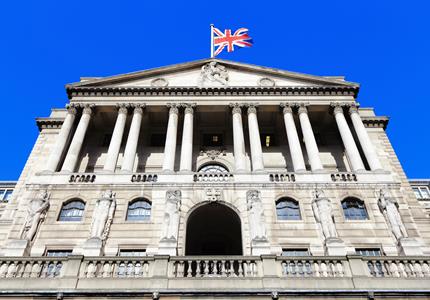

Ravenscroft Weekly Update - A chapter in our history books?
Looking at European events over the last week, the fire at Notre Dame will perhaps remind people of the rich tapestry of European history that predate the current difficulties.
In the context of both history and the current atrocities further afield, Brexit is relatively insignificant but it remains the main driver for UK politics and markets as we head towards the end of April.
In particular, the Bank of England’s MPC committee is starting to find itself in a slightly awkward situation. It has long been believed that it would not wish to move interest rates ahead of Brexit being resolved; to avoid claims of political favouritism. However once the outcome was finalised, the bank made it clear that it is ready to move in either direction depending on the requirements of the economy in reaction to the decision reached.
However now that the process could continue until 31st October, the MPC may have to change its modus operandi.
The UK labour market remains buoyant with the number of people employed as a percentage of the population continuing to set monthly records. This is feeding into an increase in average earnings which will in time have inflationary implications.
UK retail sales in March were also elevated, an increase of 4.00% on the previous month and at a two and a half year high.
So the consumer element of the UK economy appears to be performing well and in normal circumstances would suggest that the MPC would be considering raising interest rates. However this positive news is offset by the damage being done to business investment and activity by the Brexit uncertainty which we have discussed in previous notes.
A final complication for the MPC is the increase in the oil price. Brent crude has rallied by about 38% this year. The main reason for this is a cut in output by OPEC which has raised fears of a supply squeeze.
Oil for June settlement is currently trading at $74.60 in London this morning and there is talk that it could reach $80 a barrel shortly.
One thing which will please the MPC is that UK inflation is currently stable at 1.9% (as measured by the Consumer Price Index). However the MPC’s inflation target is 2.0% on a two year ahead time frame; which is where the difficulty comes from. Most people would agree that with the amount of economic uncertainty around it would be sensible to maintain a ‘wait and see’ policy. However the consumer sector appears quite buoyant and the increase in oil prices will also be inflationary.
There is an argument that waiting too long before a gentle increase in interest rates may mean that the MPC falls ‘behind the curve’ by starting to tighten after inflation has started to move too far above target. Just to make the decision even more difficult, there is of course a timing lag of up to 18 months between the MPC moving interest rates and the full impact of that move being felt by the UK economy. If the MPC can be considered the referee of the UK economy then it must look on enviously at its sporting counterparts who have a host of technology to help them (Man City fans may disagree)!
We still think that the MPC is on hold for now but that this decision might start to become more difficult if current trends continue over the next six months.
We hope you all enjoyed the sunshine over the Easter weekend - have a good (and short) week!


